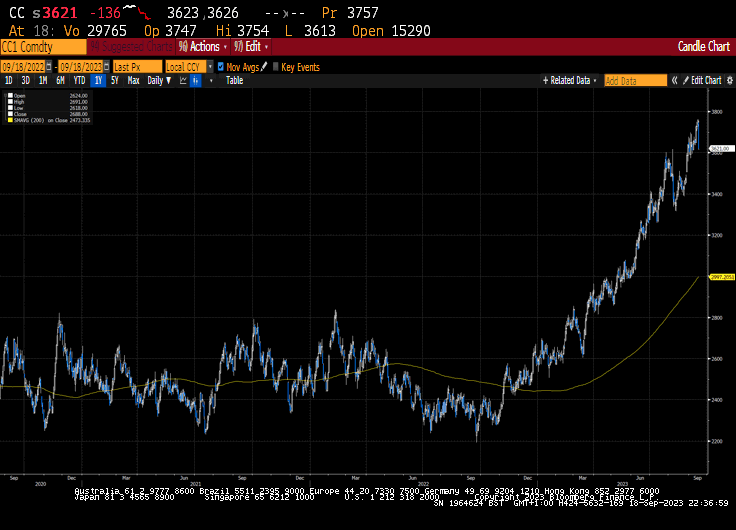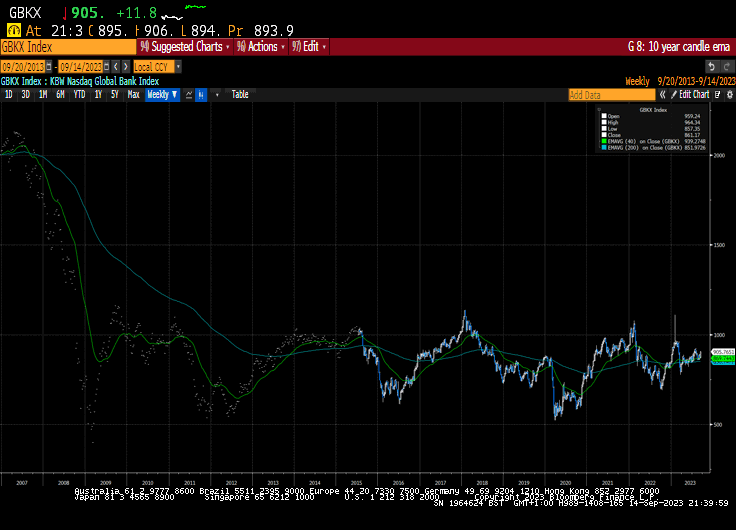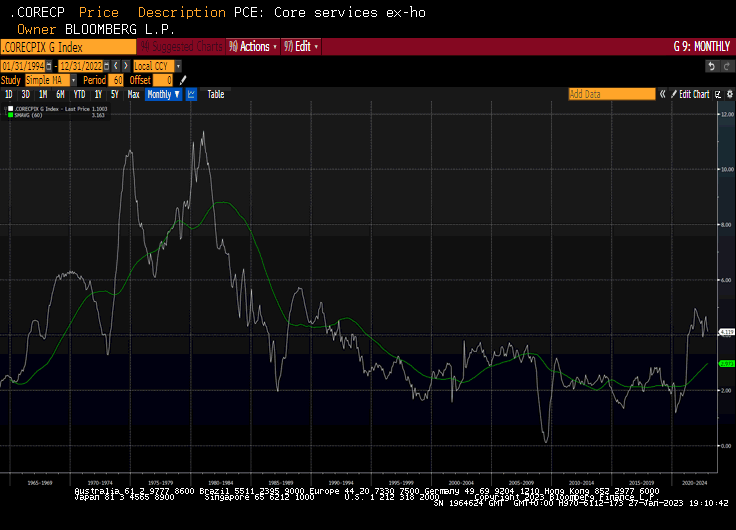German Inflation Sinks to Level Last Seen Before War in Ukraine
This article from Bloomberg may be of interest. Here is a section:
Eoin Treacy's view -German bonds pared declines and the euro trimmed gains after the release, as markets increasingly come around to that higher-for-longer narrative. The yield on 10-year government debt is hovering just below 3% — the highest since 2011. The euro is flirting with its weakest level against the dollar this year, near $1.05.
Money markets are wagering on two quarter-point rate reductions by end-2024, compared with as many as three just two weeks ago.
Inflation not only remains elevated but is accelerating in some countries. Earlier Thursday, Spain reported a jump to 3.2% this month on electricity and fuel costs. Citing the advance in oil that’s brought prices near $100 a barrel, its central bank sees a further acceleration to 4.3% in 2024. In Ireland, price growth quickened to 5% from 4.9%.
The era of negative bond yields afforded both the German government and private sector speculators the opportunity to be paid to borrow. That also implies the EU is now more interest rate sensitive than the USA. Germany’s housing prices are in a steep decline as the era of better than free money ends.
This section continues in the Subscriber's Area. Back to top





